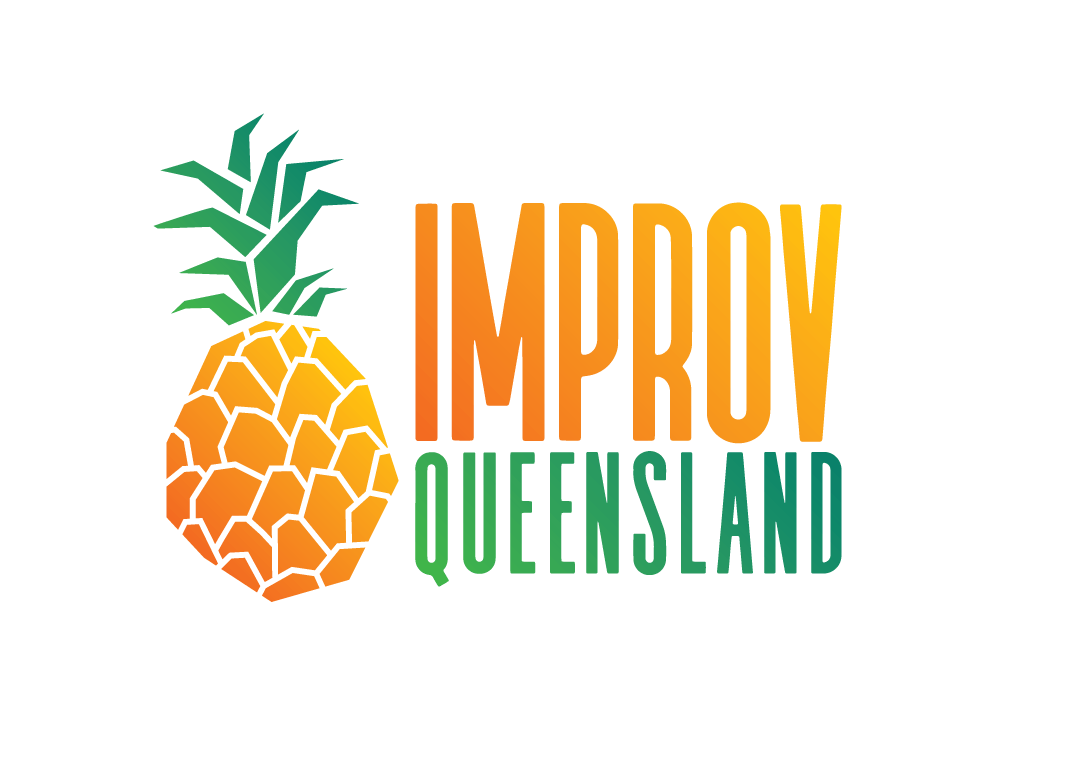My Improv Journey by Isabella Shanks
In my experience, improvisation often feels like the antithesis to today’s mainstream creator content. Improvisation by its very nature cannot be excessively curated, perfected, or tested for mass audience appeal. It exists in the moment and can’t be easily replicated. It rarely produces ‘sharable’ content and is almost always a case of ‘you had to be there’. Improvised theatre requires its performers to release control and be comfortable not knowing what the f*** is going on.
In February 2020, I took my first ‘How to Improvise’ class with ImproMafia. It was the first hobby not directly linked with university credit or resume building I’d pursued in 10 years, and I became addicted instantly. In the less than two-years that followed, I’ve partaken in seven other improv-related courses and have been lucky enough to be given opportunities to perform in some amazing shows, including at Iron Improvisor 2020, and in the Brisbane Anywhere Festival and the Brisbane Comedy Festival in 2021. Now, faced with an imminent move to Melbourne, I can reflect fondly on the lessons improv has taught me in such a short amount of time.
I think what has most surprised me on my improv journey, is just how essential good teamwork is. Improvisation is an exercise in collaboration and trust. The successful collaboration of the group supersedes any individual talents that might exist on stage. You work to inspire your partner’s imagination, highlight their strengths, and conceal their weaknesses if necessary. It always struck me how much a performer naturally supports the development of a plot just through supporting their peers properly. It’s no surprise then that trust between performers is imperative. Everyone on stage must trust each other to actively listen, watch for visual cues and respect each other’s boundaries. In the words of Charles Darwin, ‘those who have learned to collaborate and improvise have prevailed.’
Another lesson I wasn’t quite expecting was the importance of not trying to be funny. Much like a cat recognising how badly you want its affection, the audience will turn on you when they sense a desperation for comedic validation. While comedy almost always ensues in improv, it’s generally a result of performers telling the ‘truth’ and their peers providing honest reactions. It’s an ongoing lesson I will continue to work on- being able to sit in an honest moment and ignore the pressure to build an elaborate story or spew hack one-liners instead of exploring a genuine response. Sometimes this can be uncomfortable, but the best lessons often are.
“Improvisation is the theatre equivalent to spelunking.”
To most people, the thought of willingly exploring the dark (sometimes claustrophobic) cave of unscripted performance is horrifying. You don’t know what’s in there! To the willing however, that is the joy of exploring the unknown. On a bad day (and it is inevitable you will have bad days), you’ll end up sweaty and disappointed, wishing you never stepped foot on stage. On a good day though - when a scene works, when all the components come together as if by magic, and something is created that leaves the audience incredulous and wondering “was that pre-planned?”- it’s like discovering a cave full of treasure. Truly unexpected euphoria.
Admittedly, improvisation has a bit of a reputation and isn’t to everyone’s taste. I have a good friend who, while always being supportive of my creative endeavours, refuses to come to any shows. The mere possibility of experiencing cringe-worthy second-hand embarrassment on behalf of a performer whose scene has flopped, is too much for them. If only they understood that improv eventually gives its participants (to varying degrees) immunity from this type of self-consciousness (on stage at least). Amy Poehler wisely stated, “there’s a power in looking silly and not caring that you do” and she’s right.
Even during the clunkiest of scenes, performers are often saved from looking stupid if it’s clear they’re having fun. Improv requires you to take risks, which means improv requires you to fail. Fail often. Fail spectacularly. Learning to fail is an essential building block of the craft, and perhaps improv is the only platform in life where you will be truly celebrated for dropping the ball without hesitation or shame.
In less than 24-months, I went from crying in a corner after suffering complete stage fright following an unexpected request to improvise a song in rehearsal to being able to belt out an improvised ditty as a very camp, very confident Jesus Christ on stage at the Powerhouse. I’m still very early on in my performer journey but the mentoring I’ve received through ImproMafia – always characterised by the kindness, patience, and reflective natures of the teachers I’ve worked under (shout out to Luke, Ryan, Tom, Amy, Nat and Wade)- has been invaluable.
Iron Improvisor 2021 will be my final show in Brisbane, but hopefully not my final show overall. Beyond technical skills, ImproMafia has gifted me the confidence to continue my performance journey and, beyond that, live life in a way that values collaboration, honesty, and a willingness to take risks. While I don’t yet have any connections in the Melbourne improv scene and I’m not sure what opportunities I might find in a new city, I’m not stressed. Thankfully, these days at least, I’m much more comfortable not knowing what the f*** is going on.


